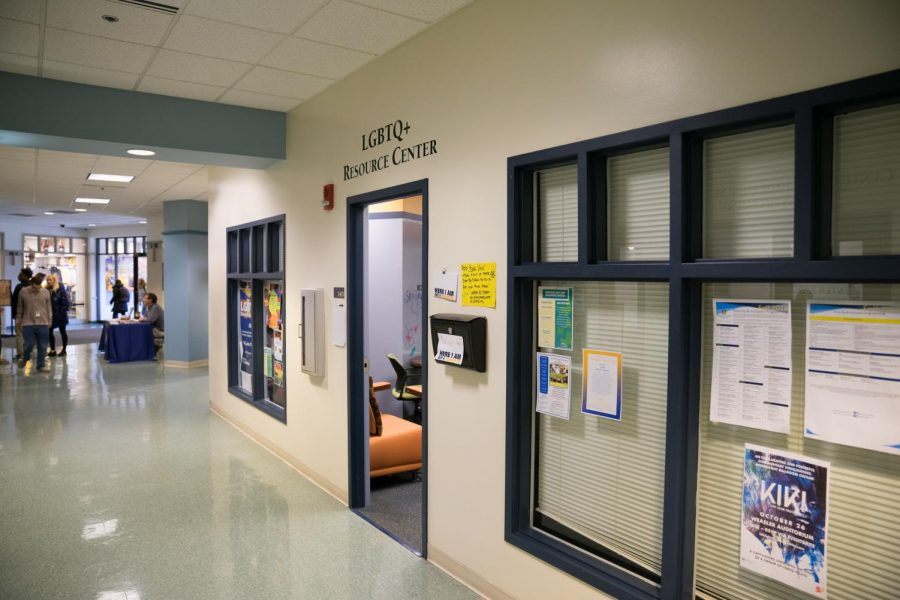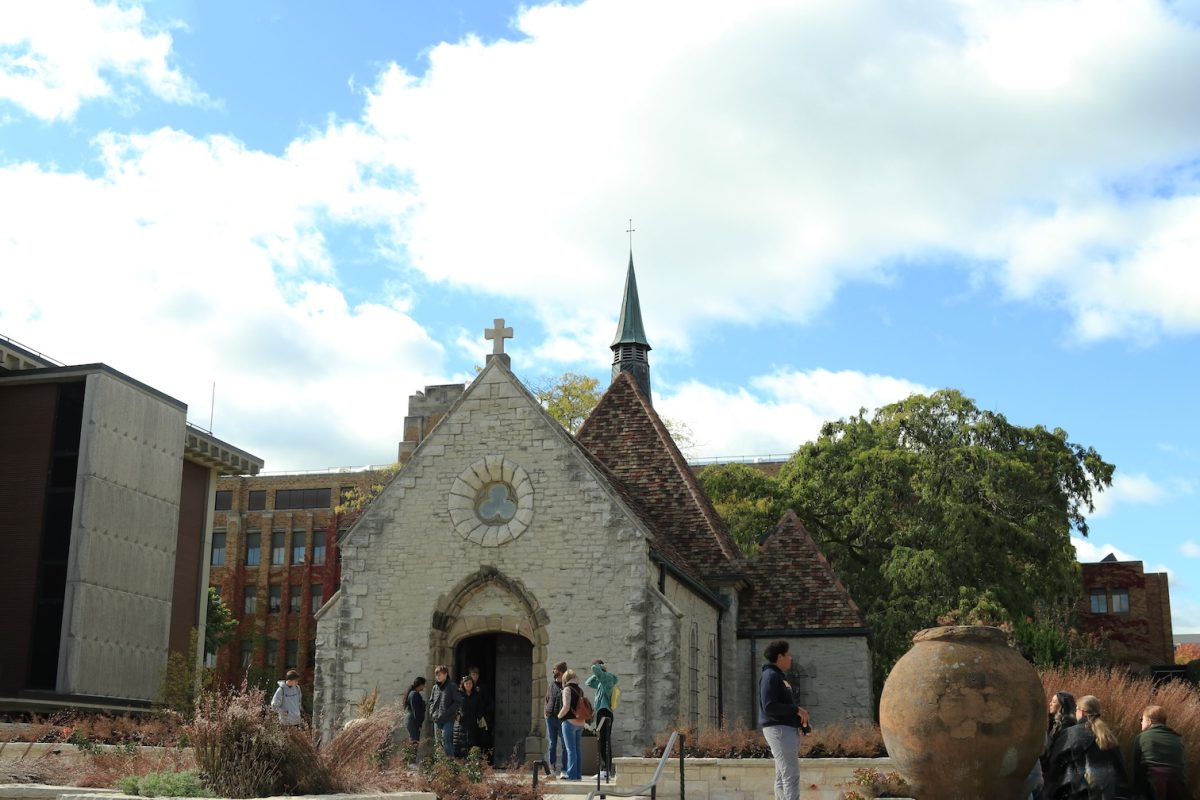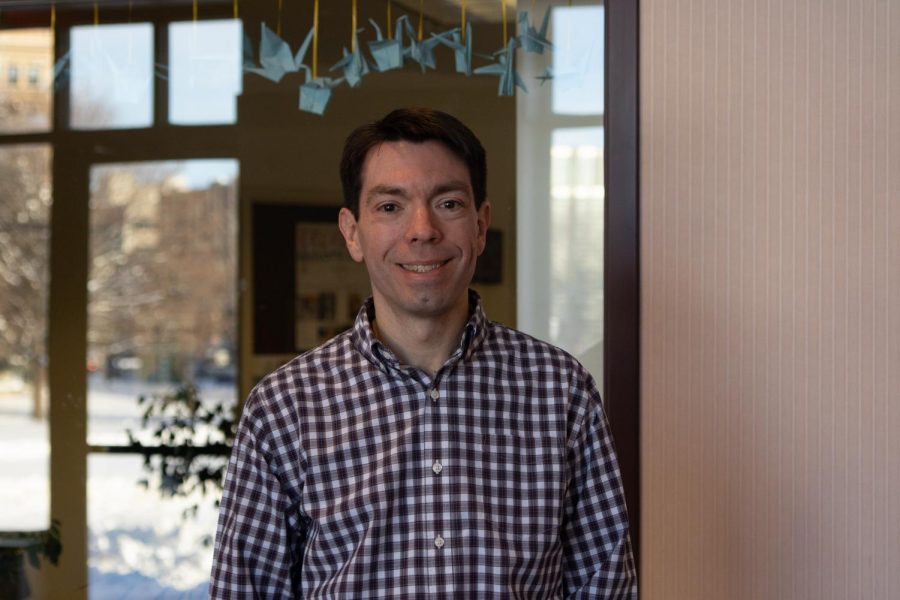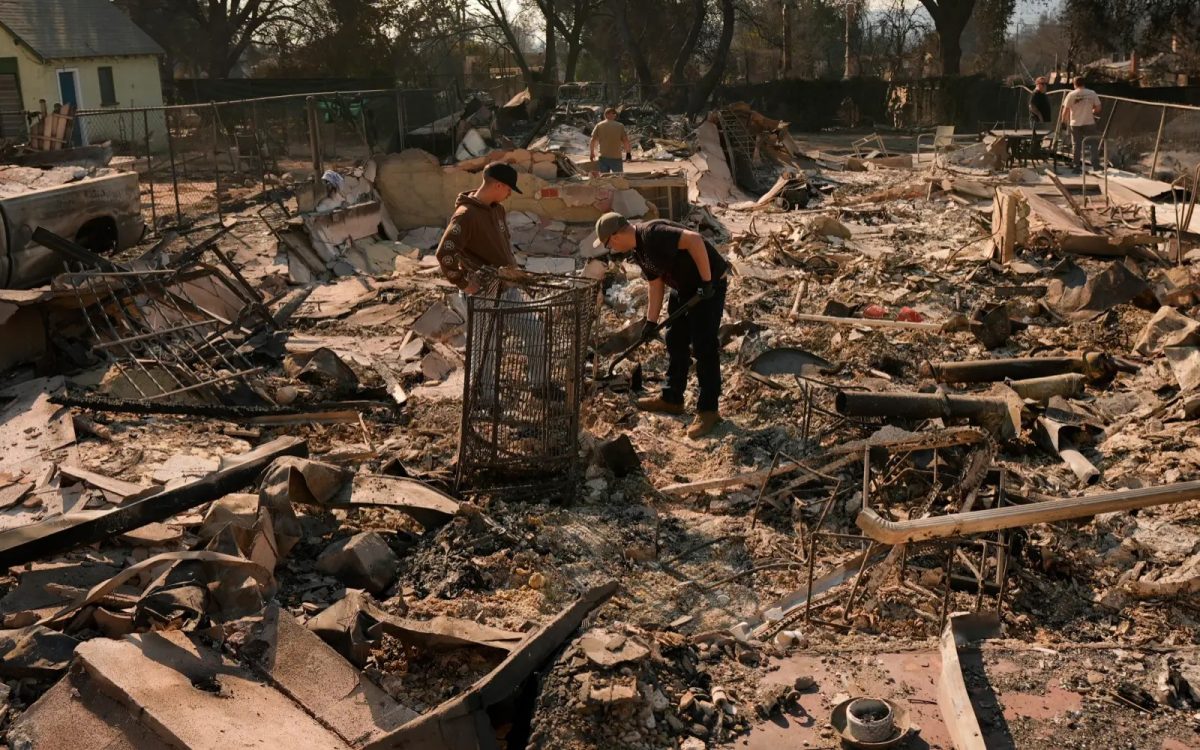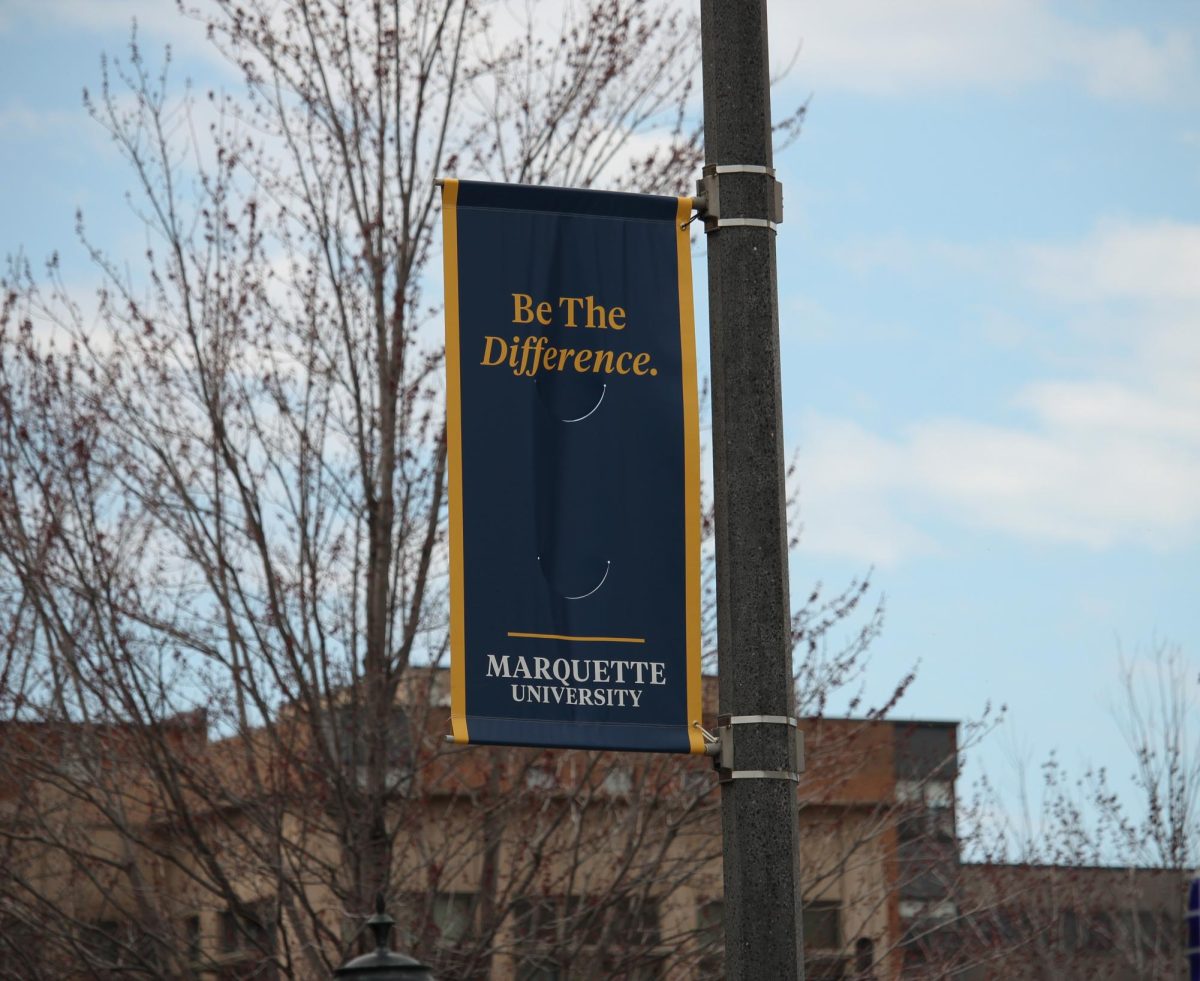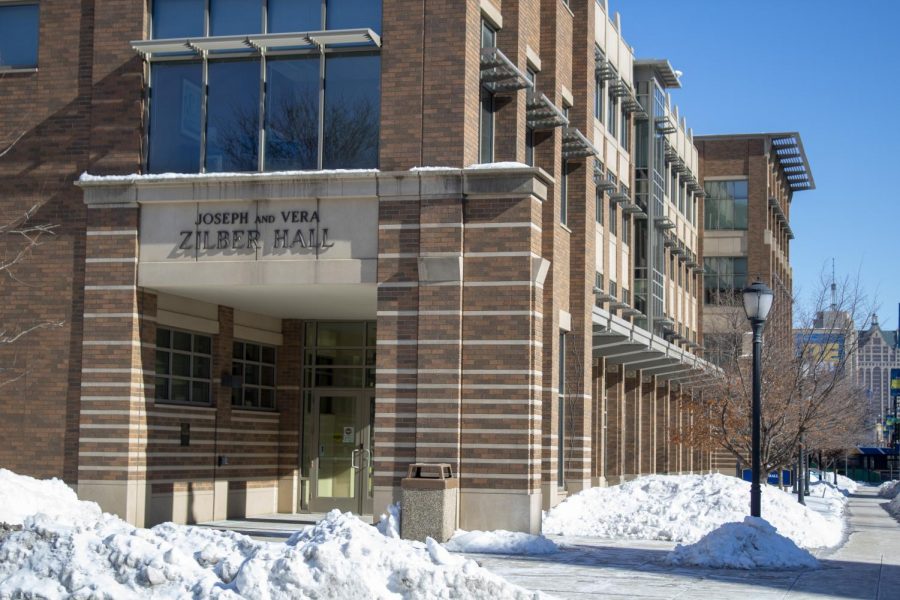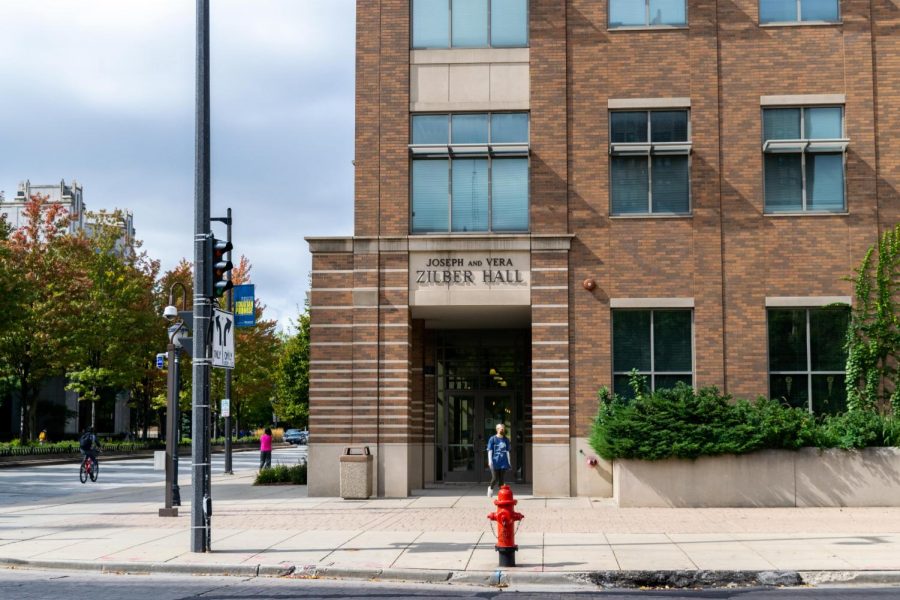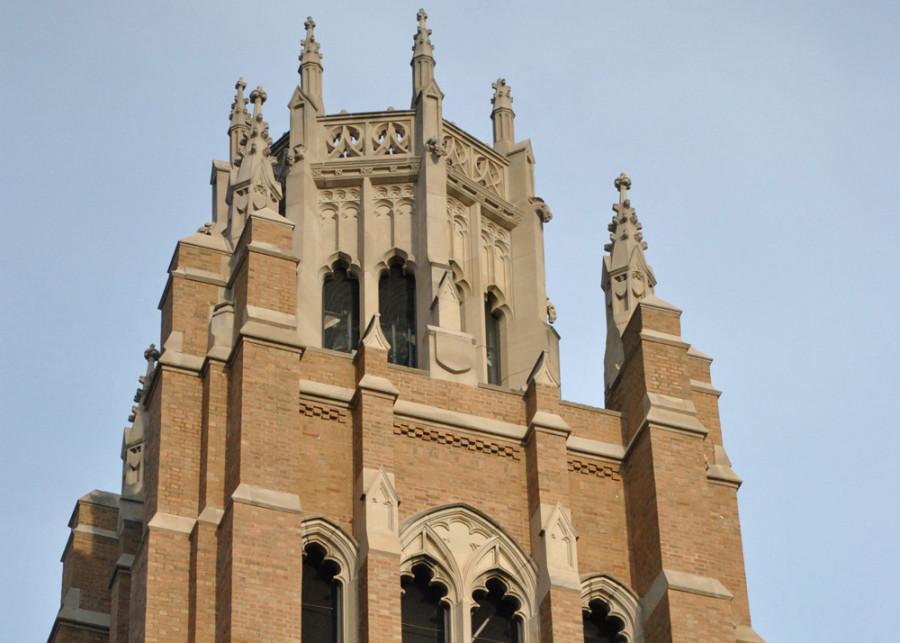A new campus group called “Coming Out to God” will begin its meetings in February, providing attendees with the opportunity to discuss the intersection between faith and identifying as part of the LGBTQ+ community.
Bernardo Avila-Borunda, assistant director for multicultural student ministry, said the group will meet the first and third Thursday of every month for 45 minutes to one hour. The idea for the group was a result of conversations with students identifying as part of the LGBTQ+ community as well as consultation with the LGBTQ+ Resource Center, Avila-Borunda said.
“We were talking about the need to explore spirituality within the experience of LGBTQ+ students,” Avila-Borunda said. “Just like with any demographic group, there are very particular experiences that shape and color the way in which we experience our spiritual life.”
Avila-Borunda said churches may have caused people to feel hurt in the past, and the group aims to help people find healing and move forward in their relationship with God and the community.
Campus Ministry founded the group and will organize events, but will continue to consult with other offices and departments in the future, Avila-Borunda said. The LGBTQ+ Resource Center supports the group’s formation, the resource center staff said.
“Although the LGBTQ+ Resource Center is not presenting the (group), we support this opportunity for a safe space for exploring spirituality, identity, intersectionality, and healing from LGBTQ+ perspectives, offered to students,” the LGBTQ+ Resource Center staff said in an email.
The session structures and topics will be catered to the group in attendance, Avila-Borunda said.
“Within (the) time, I would like us to take a moment of silent reflection first, some meditation and then address one of the Ignatian values, given that we are in a Jesuit institution and then open the conversation up to, ‘How does this value play into our lives?'” Avila-Borunda said. “The rest of it will depend a lot on who is there.”
Avila-Borunda said the group was designed in such a way to accommodate students who may have busy schedules.
“I know student life is busy,” Avila-Borunda said. “(The group) has to be in such a way that if somebody can come every other month, they can feel as comfortable and as part of it as somebody who goes to all the sessions that we have — that they don’t feel like they have missed something.”
The group is not exclusive to people of a particular faith, Avila-Borunda said.
“There are students coming from different faith provisions, so I do not want to make something specifically Christian if some of the people there do not identify as Christian or any other particular faith,” Avila-Borunda said.
He said said that there will be guidelines for dialogue and everything that is discussed in meetings will be confidential, besides any content that would require mandated reporting.
“That’s a very important thing: that there’s a trust built among the people are there,” Avila-Borunda said.
Part of creating the safe space is not publicly advertising where the group will meet. Students interested in joining the group can email Avila-Borunda at bernardo.borunda@marquette.edu.
“The other thing is just making something that is not terribly visible or flashy, or calling attention to, ‘Look, we are right here,'” Avila-Borunda said. “There are other spaces where we can do that if that is what the group decides, but this one I want to have something that is private enough for people that might not yet be too outspoken or too open about their sexual identity.”
Supporting the intersectionality of faith and possessing a LGBTQ+ identity is consistent with Jesuit values, Avila-Borunda said.
“If you’re caring for the entire person, we cannot say, ‘Okay, we are not going to talk about certain aspects, but we are going to talk about others,'” Avila-Borunda said, referring to Marquette’s value of ‘cura personalis,’ or ‘care for the whole person.’ “We cannot really be people for others as the Ignatian principles invite us to be if we first do not know what it means to be that man, that woman, that trans person, fully, so that I can fully be there for others also.”
Nick Ansay, a senior in the College of Arts & Sciences who identifies as part of the LGBTQ+ community, said when thinking about the group, people need to consider its ultimate purpose.
“I think people need to keep in mind what the group’s philosophy is all about. What and who they are trying to help,” Ansay said in an email.
In the end, how a person understands intersectionality is up to them, Avila-Borunda said.
“I cannot tell anybody what to do,” Avila-Borunda said. “I can walk with them, I can help them into discernment. I can present what are the teachings of the Church for those who are part of Roman Catholicism, but ultimately, Ignatian spirituality is about discernment, and the discernment takes place in the heart.”
This story was written by Emily Rouse. She can be reached at emily.rouse@marquette.edu

